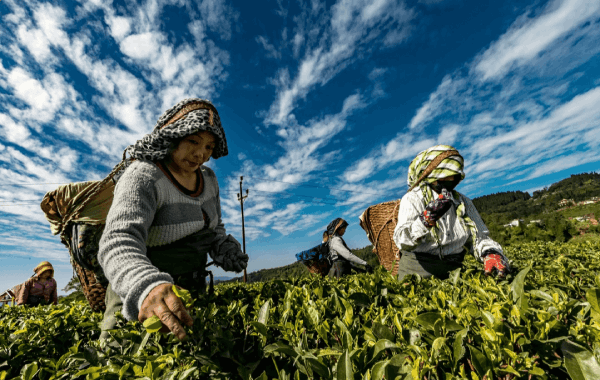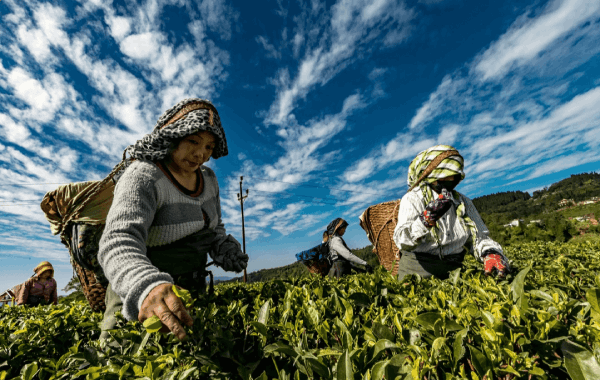There are many reasons why startups in the early stages have so many difficulties. Obstacles in finding the right talent, building solid team communication, product exploration, also penetration on the target market.
During this pandemic, these obstacles converge to several more fundamentals. Maintaining cash flow and seeking new funding to secure business continuity are two of them.
We spoke with three startups in the early phase (seed) to find out tips and strategies for dealing with this pandemic. They generally don’t have the flexibility of a more mature startup. However, it is not impossible. They have taken various initiatives to survive this abnormal situation.
Focus not only to a single market
It still remains the memory of the early months when the pandemic hit so many businesses until some are collapsed. The sectors most affected, such as hospitality, restaurants, import-export logistics, transportation, experienced the hardest hit. Large-scale social restrictions (PSBB) to reduce the level of transmission of the outbreak forced the sector to hold back for a while.
Stoqo is one of the victims. The discontinuity of thousands of restaurants and shopping centers caused their income to drop significantly. Stoqo announced shutdown in April.
Startup Izy.ai, which business is closely related to hospitality, learned from this situation. The CEO, Gerry Mangentang does not want the startup he founded to have the same fate.
Izy started its operation in 2018, relies on the sustainability of hotels and accommodations. Its platform helps hotels and accommodations digitize services and increase guests. Gerry realized that his party could not continue to rely solely on the hospitality business. Moreover, the local situation indicates that the pandemic will last longer.
“We have to pivot into another direction and must not depend only on accommodations. We have plans to enter the residential and retail [markets],” Gerry said.
Izy’s core business actually lies in fulfilling the digitization of hotel services through a subscription model. Services such as ordering food in the hotel, room service, laundry, and others. With the same principle, they are trying to open new markets by penetrating modern retail and residential settlements.
“We are an on-demand platform, with this retail we can be considered light e-commerce, but for malls and retail. The focus will be on Jakarta, Bandung, and Bali,” Gerry added.
Efficiency and other initiatives
If Izy decided to pivot in order to survive this crisis, Crowde and Doogether prefer efficiency strategy.
Crowde’s Head of Impact Investment, Afifa Urfani admitted, at the beginning of the pandemic, her team experienced a strong impact in order to survive until public acceptance of its products. Therefore, Afifa thought Crowde is more selective with every step of the way.
“We chose to slow down, to speed up later,” she said.
Crowde carefully calculates the costs in and out of the company, tightens expenses, and changes the company’ss culture to do all its activities digitally. This method is the compensation that Crowde chose, therefore the acquisition and maintenance process of their capital project continues.
Crowde’s core business is actually capital risk control in the agricultural sector. Since the pandemic began, Afifa said the company has made several initiatives to adjust to the situation. One of these initiatives is to link market access with tonnage purchases.
“What is different is that in the past we focused on the hospitality business (hotels, restaurants, cafes/catering), now we are open to multi-layer market potential,” she added.
Doogether has similar strategies. The wellness platform fronted by Fauzan Gani admits Doogether has made many adjustments to expenses.
From an initiative aspect, Doogether focuses on enriching its service features. One of them is by launching a live streaming-based class to be ordered through the application. This strategic step was taken to target people who now exercise more at home.
“In addition, we also add a verification feature for our partners who have opened their facilities and comply with the SOP from the government,” Doogether’s CEO, Fauzan Gani said.
New funding is still an option
Extending the runway is the focus of all startups in these situations. Apart from previous strategies, funding is a clearly available option. However, funding is not an easy choice because it involves many other factors.
Fauzan said that the obstacle to raising a new funding round is the unstable economic situation in Indonesia. He thought, the availability of vaccines is hope for getting out of the pandemic crisis and the adoption of the community for the industry they are in.
Fauzan admitted that his team had no plans to raise new funds. He believes the Doogether runway is still sufficient to survive the pandemic crisis since they have succeeded in getting extension funding from its investors.
“However, as a startup, we must always be ready for a new round of funding,” he said.
Afifah has quite similar answer. Attracting investors for new funding is clearly more challenging. That’s why deploying Series A funding is the second priority. Crowde’s first priority, she mentioned, is to optimize the scheme and business model in order to finance operational expenses, even though the profits they earned were thin.
We strongly believe that the runway is still long enough to survive the company, Crowde is determined to get through this crisis with their own business.
“Certainly our choice is to run a healthy business in order to ensure investment possibilities,” Afifa said.
Meanwhile, Izy is racing against time. The recent seed funding gave them a one-year runway. With hospitality and accommodation conditions still far from normal, their pivot plan will play a big role in the company’s future.
–
Original article is in Indonesian, translated by Kristin Siagian













